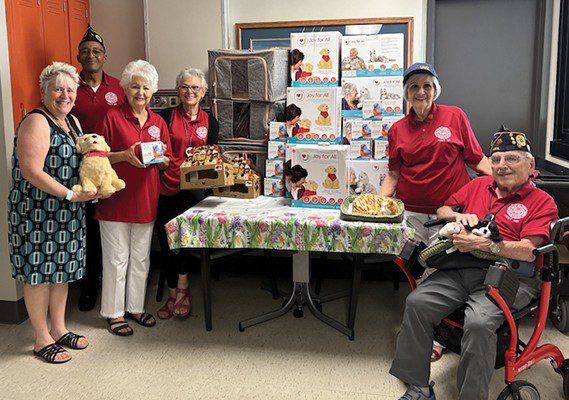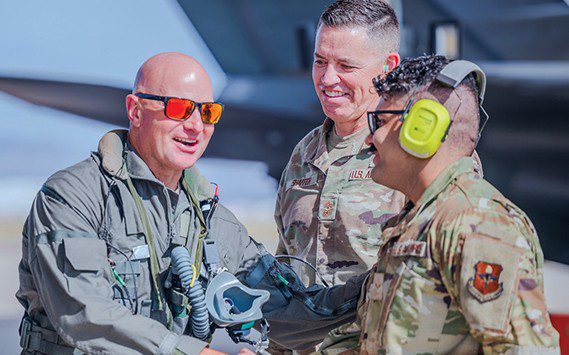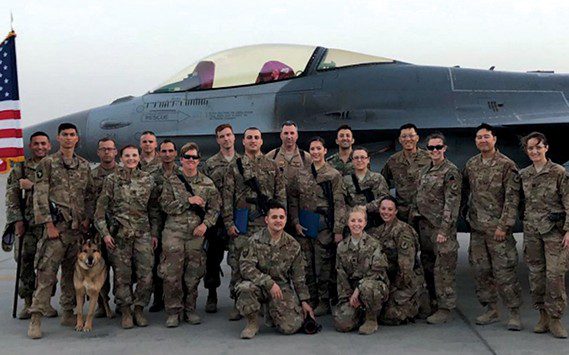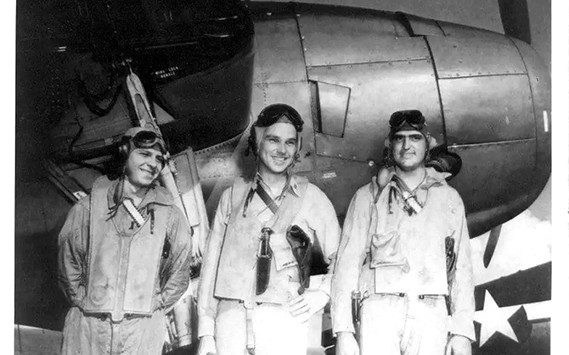Who wouldn’t like to have a soft, furry animal that didn’t need to be walked, fed, or cleaned up after? By raising funds biannually in its Poppy Campaigns at Fry’s Market Places, Jewish War Veterans Copper State 619 (JWV) can provide these pets for the Phoenix VA Medical Center dementia patients.
The group has a $3,500 yearly budget to purchase robotic pets specifically designed for use by recreation therapists working with dementia patients in the hospital. They are programmed to look and act like animals commonly kept as pets.
JWV presented the hospital staff with six Joy for All dogs, five Joy for All Cats, two Perfect Petzzz, three pet carriers, and 10 Squawker Walker birds that when attached to a walker sing to encourage walking. The post will continue to supply additional pets throughout the year as veterans are allowed to keep their “pets” at discharge.
The COACH (Caring for Older Adults and Caregivers at Home) VA program — nursing staff and social workers who keep veterans in their homes as long as possible— also uses robotic pets when visiting vets with dementia. They encourage their caregivers (often spouses) to use the pets as a distraction when they need to leave veterans by themselves for a while.
A pet can provide a variety of health benefits, including reduced blood pressure, cholesterol, and loneliness as well as boosting exercise and socialization opportunities. Studies show that a robot pet can also have the same health benefits.
Researchers at Auckland University, New Zealand, found a robot companion could offer benefit to older adults like living animals, especially in improving the mental well-being and living standards.
According to studies by the VA which began using robotic pets in North Carolina during the COVID-19 pandemic, robotic pets at the Salisbury VA Community Living Center “have brought comfort, connection and therapeutic benefits to veterans with memory loss, dementia and depression,” the VA reported in 2022. “Patients tend to calm down when they have someone or something to nurture.”
Residents with mechanical pets in eight care facilities in Cornwall, England showed “decreased neuropsychiatric symptoms,”compared with those without robotic animals.
This donation is one more example of how the post can turn poppy proceeds into items specifically requested by the many local veterans service organizations. Poppy volunteers are needed only twice a year for a three-hour period to sit in front of an east valley Fry’s Market Place and accept contributions that allow JWV to provide donations like these.
JWV Post 619, which meets the third Sunday of every month from September to June, has members representing a wide range of religious affiliations, and participates in philanthropic activities to help veterans of all faiths.
To learn more about JWV activities and membership, contact Arthur Uram, (702) 884-4175, uramarthur@gmail.com












